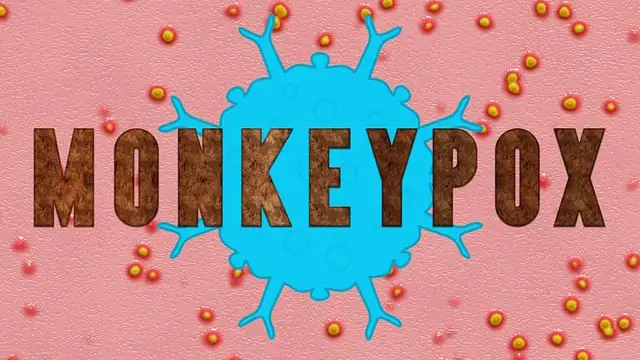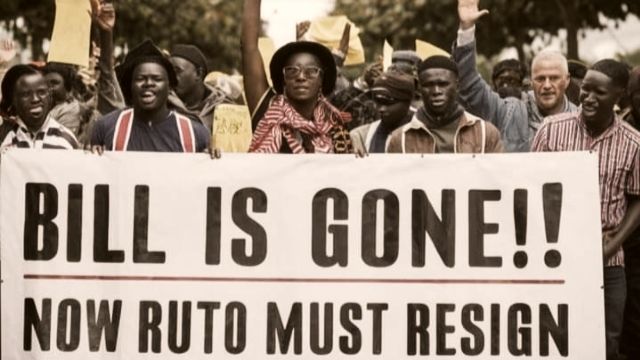Since gaining its independence from Belgium in the 1960s, the Democratic Republic of Congo (DRC) has been repeatedly plagued by conflicts, coups and frequent regime changes that have essentially stagnated the country’s economy, education and healthcare systems, paving the way for the current Monkeypox (mpox) epidemic being witnessed by the second largest nation in Africa, by landmass.
This rare viral zoonotic disease named mpox was first discovered in parts of Africa back in the 1970s and is an orthopoxvirus, from the disease family that causes smallpox. The disease had remained largely endemic to the continent of Africa until a global surge in 2022 that forced the World Health Organization (WHO) to declare it a global health emergency that requires immediate global attention. After ten months of observation, WHO dropped mpox from its global watchlists on the account that international infection rates had declined.
Originally contracted through contact with infected primates, the mpox has since built up its immunity, evolving, waiting and bidding its time till it gained the ability of cross-species transmission. According to reports from Africa Centres for Disease Control and Prevention (CDC), mpox or monkeypox was previously of two variants or strains: clade I and clade II, that have mutated since the global outbreak in 2022.
Having evolved into a newer and deadlier strain of the virus, currently named ‘clade Ib’, the disease is now sweeping through the DRC, and has already resulted in a cross-country outbreak, with cases being recorded in Nigeria and Rwanda. Official sources from WHO indicate that the newly discovered clade Ib strain has been proven to carry a mutation known to geneticists as APOBEC3, a signature of cross-species transmission into humans.
Since the beginning of the year, the DRC has recorded over 27,000 suspected cases of clade I and clade Ib mpox cases and nearly 1,100 deaths have occurred in the timeframe. Currently, over 75% of the cases being recorded in DRC are in children under the age of 10. Healthcare professionals are essentially considering the mutated strains of clade Ib and IIb as sexually transmitted diseases on the account that the first cases originated from travelling sex workers in South Kivu, Congo.
According to Dr Dimie Ogoina, an infectious diseases expert at Niger Delta University Hospital in Nigeria who is also the chairperson of WHO’s mpox emergency committee, the schematics of the outbreak including the transmission and fatality rates of the newly discovered clade Ib strain of mpox is still undefined at best. The lack of information, equipment and medical resources further complicates the situation to the point that the outbreak cannot be contained effectively without massive international assistance.
He estimated that to completely eradicate mpox, nearly 10m doses of vaccine need to be distributed across the continent, without further ado. Despite being the epicentre of the outbreak, DRC currently awaits the arrival of the first shipment of 10,000 mpox vaccines that are due to arrive in Africa by the next week or so, although the destination is Nigeria and not the DRC.
The DRC government has contacted several vaccine donor nations and the two main mpox vaccine-producing organisations, KM Biologics and Bavarian Nordic, but when and how many vials will arrive in the continent by the end of this year, is yet to be finalised. According to reports the cost of the vaccine made by Nordic Bavarian is nearly US$100 per vial, while KM Biologics is yet to comment on the questions raised.
However, unconfirmed sources within the US Agency for International Development (USAID) have disclosed that it is hard to dispatch all the needed vaccines by the end of this year as the African nations have diverse bureaucratic protocols that need to be followed by the book before dispatching a large number of vaccines currently required by the epicentre of the outbreak, the DRC,
The delays in deploying vaccines have once again highlighted the fact that despite witnessing the terrible effects of the COVID-19 pandemic, the international medical community has done little to mend its ways when it comes to solving the extensive red-tape barriers involving vaccine production and delivery to lower-income nations like the DRC and Nigeria.
The WHO recorded the first global cases of the monkeypox virus back in 2022 and maintained a continued focus on the disease-affected regions for 10 months before developing initial vaccines. But instead of treating the source of the outbreak, the focus remained on treating the international patients who had acquired the infections during their time in Africa.
While the majority of the world has bolstered the immunity of their citizens through modern-day advancements in vaccine developments and campaigns, monetary and societal challenges still bar many African nations from joining those ranks, including the DRC. While most nations can pay for the vaccine supplies being imported from more developed nations like Germany and the UK, the majority of African nations still depend on vaccine donations to deal with their epidemic, no matter the horrific situation at home.
Frequent regime changes, policy withdrawals and rampant corruption have further weakened Congo’s healthcare capabilities to the point that even with nearly 109m people currently inhabiting the nation, mpox vaccines weren’t dispatched until as late as last week.
So, the question arises whether the WHO had knowingly sidelined the low-income African nations despite the enormous possibility of a global outbreak. If it hadn’t then what is the delay in dispatching much-needed vaccines and other medical supplies required to curb the spread of the virus? Or is it that after the problem has waned for the developed nations, the problem goes back to being entirely for the developing nations, just like in the first place?
The disparity in dispatching urgent aid to low-income nations in Africa irrespective of immediacy is a problem that has plagued the continent since the time of colonial powers. Instead of uplifting the challenges faced by nations like DRC, the focus of developed nations remains to extract natural resources above all others.
It should also be noted that the DRC has had a disturbing history of civil wars and conflicts that over the years have resulted in overcrowding in makeshift refugee camps that were never supposed to be a permanent solution in the first place. The appalling, overcrowded and unsafe living conditions in these camps further exacerbate the transmission of the virus, as necessary health and hygiene standards are rarely met, even by the government administration.
Unable to grapple with multiple disease outbreaks and conflicts on the same front, the DRC’s government lacks many basic amenities required to handle the arrival and distribution of the vaccines like proper refrigeration equipment (mpox vaccines need to be stored at -20°C) and specialised staff to administer the vaccines among the infected populace.
While the world leaps ahead in scientific advancements, nations like the DRC are left at the whims of corrupt politicians and rebel factions, who prefer instability over peace. The unwillingness and inability of the government to solve these issues results in the world turning its back on DRC, and Africa at large. The current mpox outbreak is an indicator of a failed administration that has only worsened the woes of the people of DRC instead of alleviating them.
While the matters of the state may be best left at the hands of the people of the country, the world at large must step up to normalise the situations in the mpox-ridden nations, immediately. Failure to do so will result in yet another viral catastrophe that may claim more lives than Covid-19.


